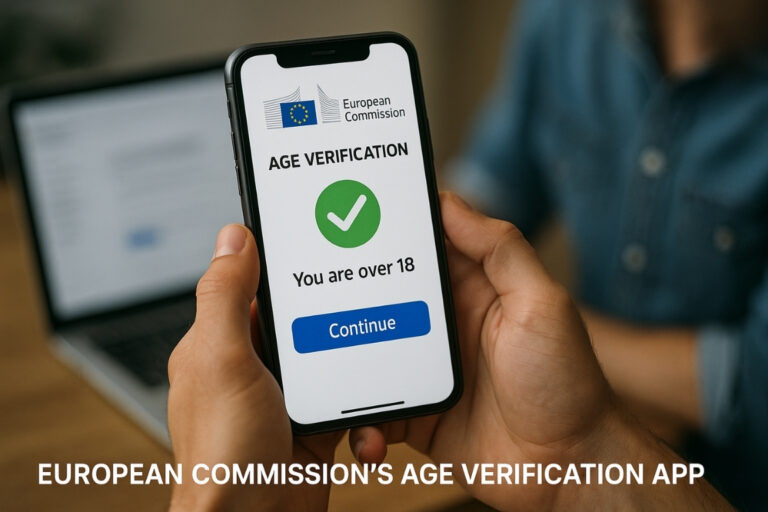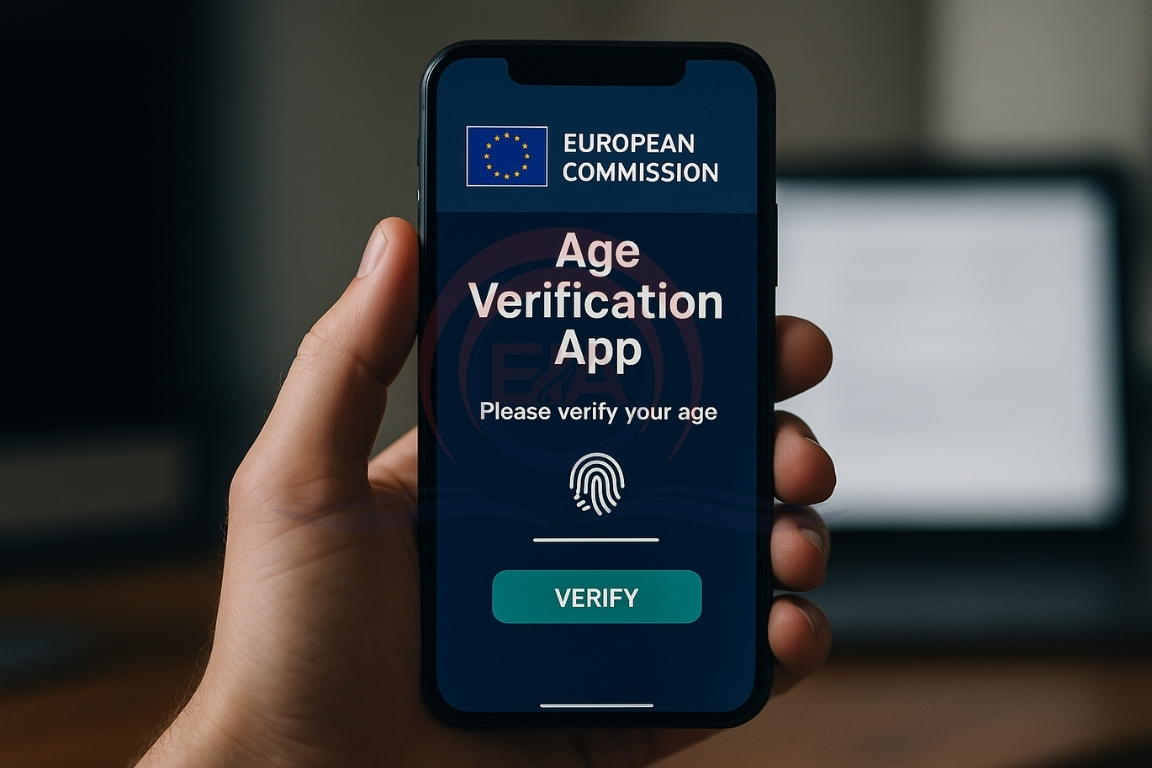The European Commission has introduced a prototype age verification app under the Digital Services Act (DSA) to protect minors from harmful online content. The move has sparked a debate over balancing child safety and adult user privacy.
Background & Objective
- The EU is tightening online regulations for major platforms like e-commerce sites, social media, and adult content websites.
- The goal is to protect minors from digital risks such as exposure to explicit material, cyberbullying, and online predators.
Features of the Age Verification App
- Developed under the Digital Services Act.
- Aims to verify a user’s age without revealing other personal details.
- Built using the same technology as the European Digital Identity Wallet (eID), to be launched by 2026.
- Participating countries in the pilot phase: France, Denmark, Greece, Italy, and Spain.
- Uses zero-knowledge proof technology to maintain user privacy — only confirms age without exposing identity.
Privacy Concerns Raised
- Critics fear the app might compromise user anonymity and track browsing activity.
- Risk of data breaches, with repeated age verification exposing sensitive personal information.
- Concerns that adult users might be forced to share personal data to access certain content.

European Commission's Response
- Claims the system ensures privacy: users prove they are 18+ without revealing exact age or identity.
- Open-source model: app’s code and architecture are available for public review.
- No browsing history or identity data can be reconstructed by platforms.
Opposition from Adult Content Industry
- Pornhub’s parent company, Aylo, argues age checks should happen at the device level (e.g., by Apple or Google) rather than on individual websites.
- Warns that users might turn to unregulated platforms, risking exposure to illegal content.
- Temporarily blocked access in France to protest against mandatory age checks.
Way Forward
- France is actively pushing for age checks and is considering banning social media for users under 15.
- Final rules and wider EU implementation expected after legal and technical refinements.
Conclusion:
The age verification initiative represents a major step in EU digital policy, aiming to safeguard children while navigating complex privacy and enforcement challenges.





